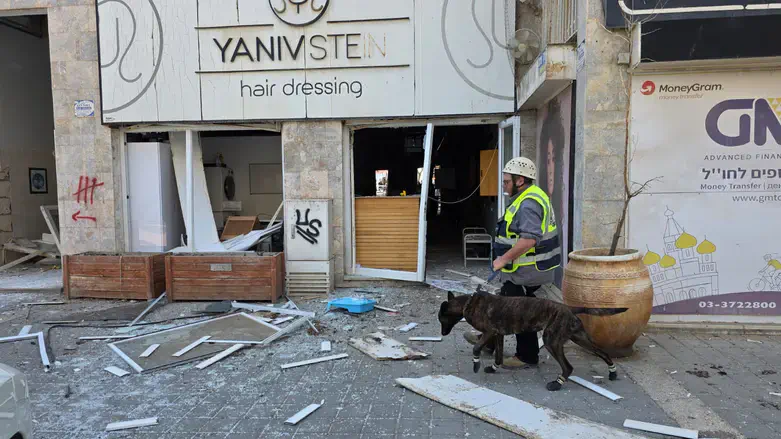
The Israel Dog Unit (IDU), a nonprofit specializing in working dogs, joined the rescue efforts in the aftermath of the last Iranian missile strike in Be'er Sheva before the ceasefire, in which several Israelis were killed. The IDU used its specially trained rescue dogs to assist the IDF and other emergency services in the search for survivors and the identification of potential casualties under the rubble.
The IDU's work is not only focused on saving lives, but also on confirming the absence of any individuals still buried under debris, offering much-needed closure for families awaiting information.
The scene in Be'er Sheva has been described as harrowing, with significant destruction resulting from the missile strike. The IDU has been navigating this challenging environment, where there are numerous indicators of possible victims, making their task both delicate and urgent.
"The situation here is difficult, with numerous signs of damage and potential victims, but our dogs are trained for just these types of operations. We're working closely with IDF forces to ensure we leave no stone unturned," said IDU director Yekutiel Ben-Yaakov.
Throughout the war, the IDU's dogs and handlers have been active in similar search-and-rescue missions. Despite the ceasefire, the organization continues to be on standby to respond to emerging threats and provide valuable assistance across the country.
As the war progresses, the IDU is intensifying its efforts to train new rescue dogs. On Monday, the unit conducted a special training exercise in an urban environment, simulating the aftermath of a missile strike and including rubble, obstructions, and missing person scenarios. These exercises are part of the unit’s broader efforts to maintain operational readiness, ensuring that both the dogs and their handlers are equipped to respond to any emerging crisis.
"We are committed to maintaining the highest level of operational readiness. Our dogs undergo rigorous training to ensure that they can perform under the most challenging and dangerous conditions, saving as many lives as possible," said Ben-Yaakov.
